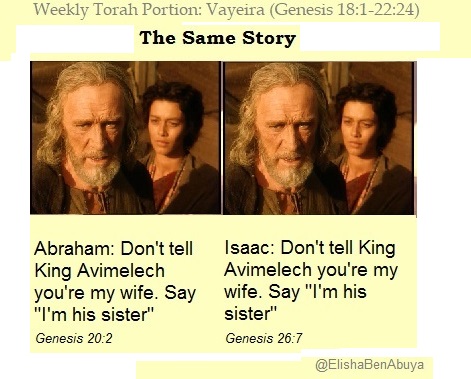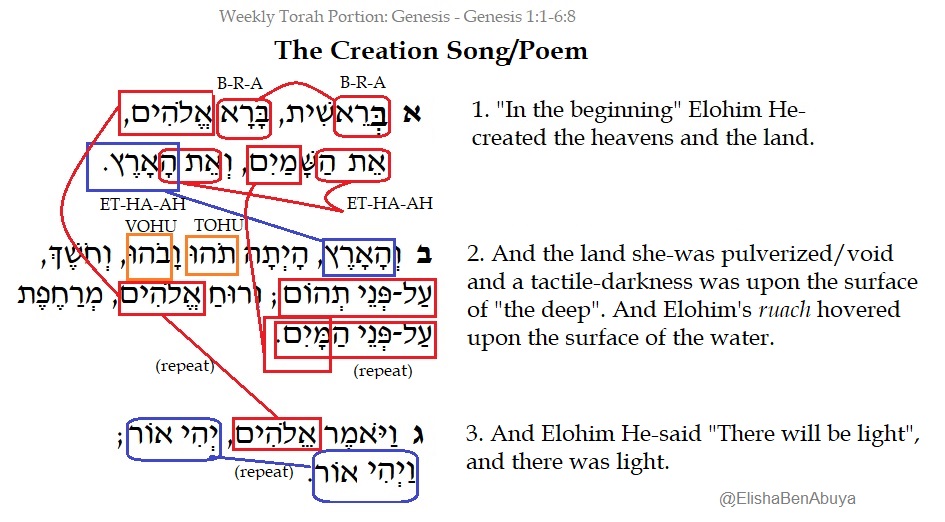[thread]
Let's talk a little bit about the #Torah story where Isaac pretends that his wife is his sister.
It is not only directly lifted from the story of Abraham, but seems oddly inserted in the timeline.
#EBAMeme
#Toldot
1/6
Let's talk a little bit about the #Torah story where Isaac pretends that his wife is his sister.
It is not only directly lifted from the story of Abraham, but seems oddly inserted in the timeline.
#EBAMeme
#Toldot
1/6

Previously, we are told that Rebecca was barren for 20 yrs (25:21), then she was pregnant with twins, and it was such a painful time, she walked to visit Yahweh to get some advice.
#EBAMeme
#Toldot
2/6
#EBAMeme
#Toldot
2/6

Years go by, and the twins grow up. And there's this strange story, full of puns, about Esau selling his birthright.
#EBAMeme
#Toldot
3/6
#EBAMeme
#Toldot
3/6

But then we have a story copying that of Abraham - a childless couple going to Gerar because of a famine, where she is so gorgeous, that everyone wants her.
There's also some wordplay going on in here too. (Gerar, the town, means "dispute" or "sojourn")
#EBAMeme
#Toldot
4/6
There's also some wordplay going on in here too. (Gerar, the town, means "dispute" or "sojourn")
#EBAMeme
#Toldot
4/6

Obviously, this story should have been inserted before the boys were born. And the typical apologetic as to why Abimelech was still around as much as 75 years later is, "It was a different one" or "It's a kingly title".
Ignoring Pichol, of course!
#EBAMeme
#Toldot
5/6
Ignoring Pichol, of course!
#EBAMeme
#Toldot
5/6

Some see the stories in Genesis 26 (Isaac) as simply copies from Genesis 21 (Abraham).
Others hold the Abrahamic stories were borrowed from Isaac. Although, based on the poor timeline insert and Abrahamic references, I lean towards to former opinion.
#Toldot
6/6
[End Thread]
Others hold the Abrahamic stories were borrowed from Isaac. Although, based on the poor timeline insert and Abrahamic references, I lean towards to former opinion.
#Toldot
6/6
[End Thread]
• • •
Missing some Tweet in this thread? You can try to
force a refresh






















